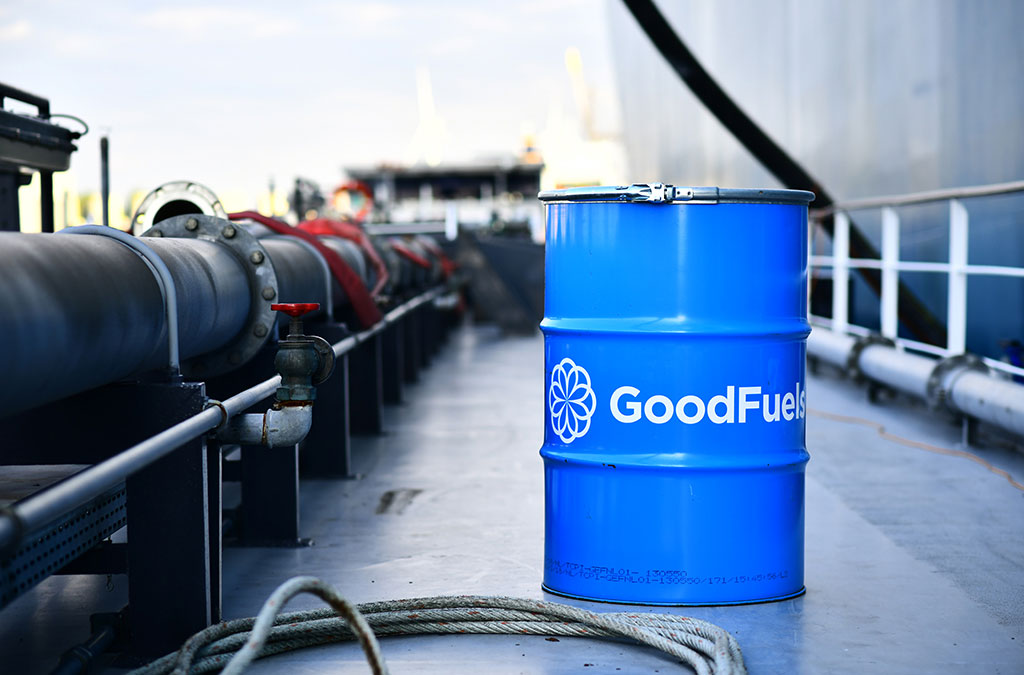
Sustainability
Truly sustainable
Our biofuels meet the highest sustainability requirements and are reviewed by our independent sustainability board. This ensures that by using our products, you are really contributing to a better and more sustainable world.

Our sustainability promises
• No competition with food
• No direct or indirect land use change
• No deforestation or biodiversity loss
• No higher quality application possible
• Minimum of 75% co2-reduction
• No negative social or legal impacts

Meet the
Independent sustainability board

Anne Marit Post-Melbye
Head of Industry Policy, Miljøstiftelsen ZERO
Anne Marit Post-Melbye is the head of industry policy at Miljøstiftelsen ZERO, working with climate solutions across bioeconomy, CCUS and hydrogen. Before starting at ZERO, Anne previously worked at Ramboll as a senior analyst for energy systems.
Anne holds a M.Sc. in Energy and Environmental Engineering from the Norwegian University of Science and Technology.

Martin Junginger
Full Professor of Bio-based Economy, Energy & Resources, Utrecht University
Martin Junginger is leading the Energy and Resources group of the Copernicus Institute, as well as the biobased economy research cluster. His expertise includes solid biomass logistic supply chains and greenhouse gas balances, including forest carbon accounting.
Martin holds a PhD in renewable energy and a M.Sc. in chemistry from Utrecht University.

Patricia Osseweijer (Chair)
Professor of Sustainability, TU Delft
Patricia Osseweijer is a professor in Science Communication and a Group leader of the Biotechnology and Society group at the Delft University of Technology. Next to that, she is managing director and program leader of the Society Program of the Kluyver Centre for Genomics of Industrial Fermentation.
Patricia holds a PhD from the VU University of Amsterdam, and an MSc in biology from the Utrecht University.
FAQ about Sustainability
GoodFuels’ biofuels meet the highest sustainability requirements and are reviewed by our independent sustainability board. This ensures that by using our products, you are contributing to a better world.
We produce our biofuels from certified feedstock that is labelled a waste or residue. With no land-use issues and no competition with food production or deforestation. All biofuels GoodFuels offers, are certified by the leading schemes of the world ensuring true sustainability and transparency of the supply chain. The type of feedstocks we use for our biofuels, are approved by our independent sustainability board, to make sure they meet the highest sustainability requirements.
- 2015 — GoodFuels introduced the world’s first marine biofuel bunkering, together with Boskalis and Wärtsilä.
- 2017 — First inland waterway pilot with Heineken.
- 2017 — GoodFuels launches the GoodShipping Program, the worlds’ first sustainable shipping initiative that enables freight owners to change the global fuel mix.
- 2018 — GoodFuels and D/S Norden initiated the world’s first ocean-going vessel to make a voyage on biofuels – a direct replacement for arguably the dirtiest heavy fuel oil ever invented by mankind – saving up to 90% in carbon and 100% in sulphur emissions.
- 2018 — First blockchain biofuel bunkering, together with Samskip.
- 2019 — Another world first for GoodFuels and client Boskalis in operating a dredging vessel on 100 percent biofuel.
- 2019 — GoodFuels and Ikea introduced the world’s first container vessel to sail on biofuel.
- 2021 — First biofuel trial of an ocean-going vessel in Singapore
- 2022 — GoodFuels opens Singapore office to serve Asia Pacific region
- 2022 – World's first large-scale passenger ship to sail on biofuel with AIDA Cruise

Still questions?
Please contact me!
Please contact me!










